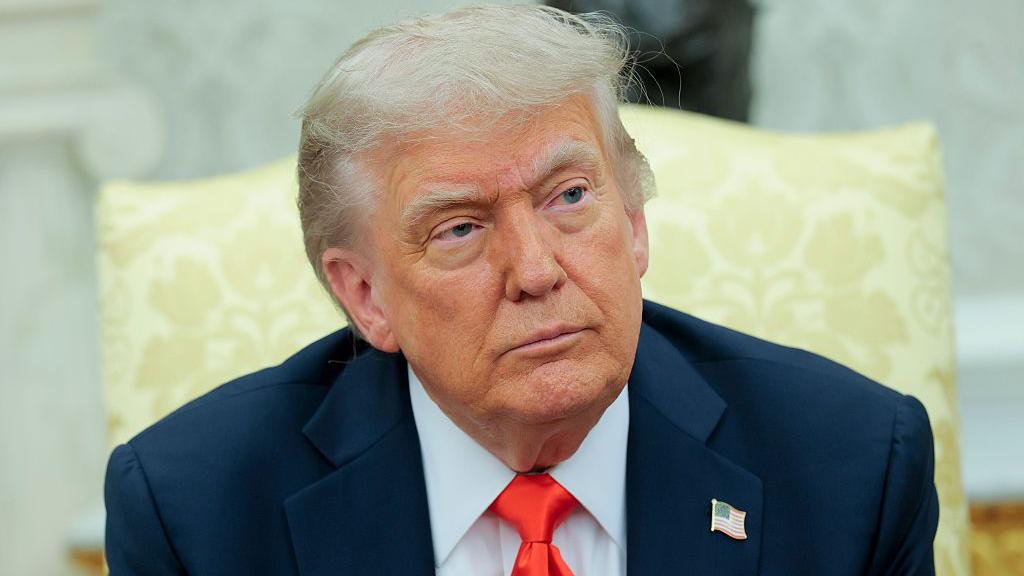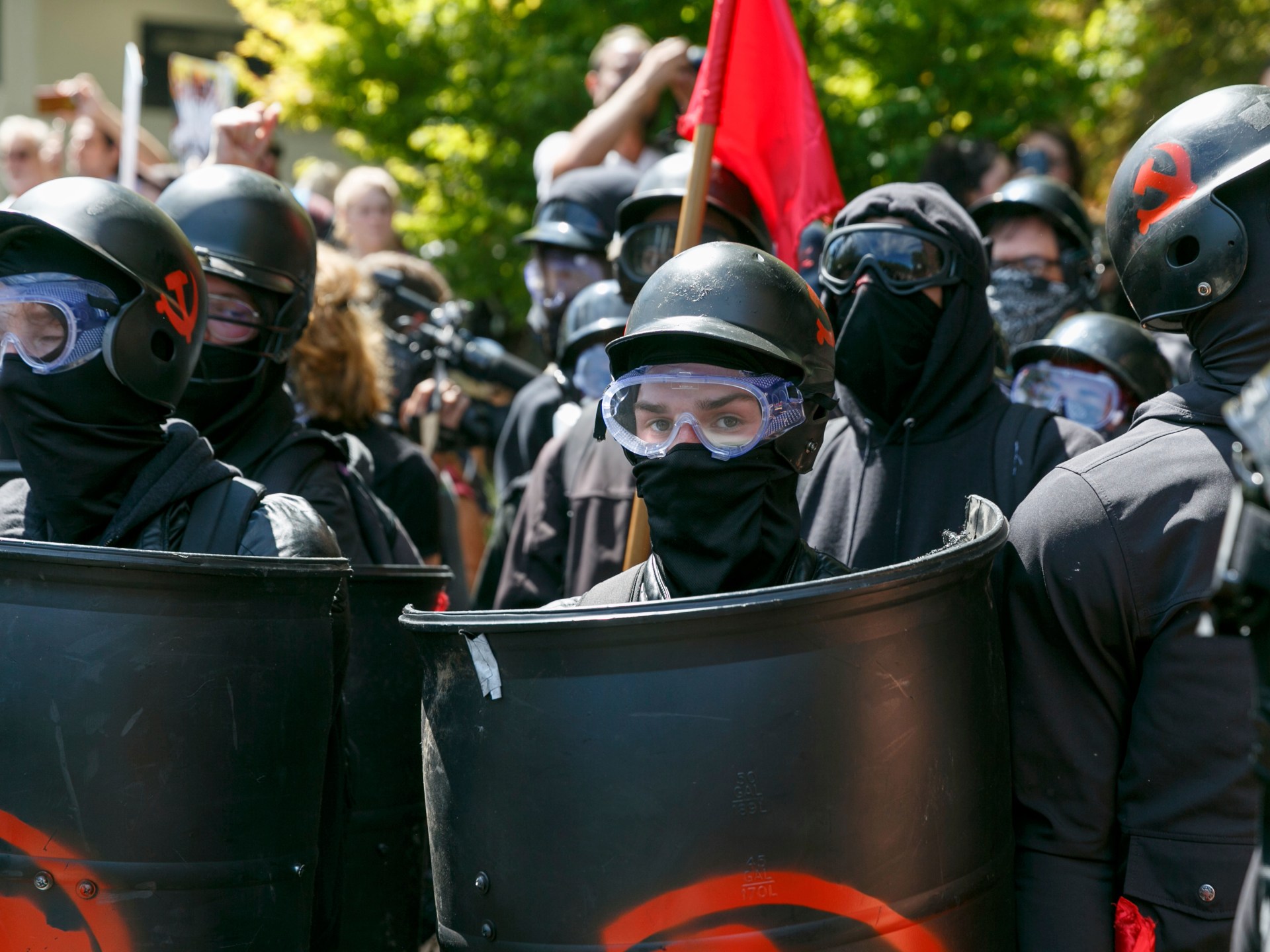In a groundbreaking development, several members of the far-left militant group Antifa have been arrested and criminally charged following a tense standoff in Eugene, Oregon.The group’s members were accused of encircling an Immigration and Customs Enforcement (ICE) facility, instilling fear and causing significant distress among employees working within the building.This incident marks a historic turning point, as it is the first time members of Antifa have been officially designated as domestic terrorists, following President Donald Trump’s executive order that classified the group as a terrorist organization.
The arrests, which have sent shockwaves through both law enforcement and political circles, represent a critical shift in the United States’ approach to dealing with Antifa’s increasingly radicalized actions.The group, known for its violent protests and militant stance against perceived fascist ideologies, has long been a subject of controversy. For years, Antifa has been involved in clashes with law enforcement, engaging in violent protests, property destruction, and intimidation tactics, particularly against conservative and right-wing groups.While some have argued that Antifa’s actions are simply the result of individuals exercising their right to protest, others have pointed to the group’s increasingly violent tactics as a threat to public order and safety.
The latest arrests come as a result of the Trump administration’s directive to take a more aggressive stance against Antifa, which has been linked to a number of violent incidents across the United States.The incident in Eugene, Oregon, began when a group of Antifa members gathered outside the ICE facility, shouting chants and waving banners.

According to law enforcement reports, the protesters quickly escalated their actions, blocking entrances to the building and making verbal threats towards employees inside.The situation became particularly tense as Antifa members used loudspeakers to broadcast their demands for the abolition of ICE, further exacerbating the already heightened atmosphere.As the standoff continued, law enforcement agencies in Eugene, including local police and federal officers, were called to the scene to diffuse the situation.Despite attempts by authorities to engage in peaceful dialogue with the protesters, the group’s behavior escalated, and several Antifa members were arrested after they refused to disperse.The individuals arrested were charged with a variety of offenses, including conspiracy to commit domestic terrorism, vandalism, and resisting arrest.
This arrest marks a significant shift in how law enforcement and the federal government view Antifa. While the group has long been a source of contention, it was not until President Trump issued his executive order classifying Antifa as a domestic terrorist organization that the full force of federal law was brought to bear on the group’s members.The designation allows federal authorities to use counterterrorism tactics to dismantle the organization and prosecute its members under more severe charges.The decision to classify Antifa as a domestic terrorist group has been met with mixed reactions. Critics of the move argue that it is an overreach by the federal government and a politically motivated attempt to silence dissent.

These critics contend that labeling Antifa as a terrorist organization is a violation of free speech and could be used to target activists who engage in nonviolent protests.Furthermore, some have expressed concern that the government’s actions may lead to further polarization and division, with the possibility of more violent confrontations between protesters and law enforcement.Supporters of the move, on the other hand, contend that Antifa’s actions have gone beyond mere protest and have become a direct threat to public safety.They point to numerous instances in which Antifa members have engaged in violent clashes with law enforcement officers and members of opposing political groups.The group’s involvement in violent riots, such as those that took place in Portland, Oregon, and Berkeley, California, has led many to view Antifa as a domestic threat that needs to be addressed.The arrests in Eugene are just the latest in a series of actions taken against Antifa members in recent years. Federal law enforcement agencies, including the FBI, have been increasingly focused on investigating the group’s activities, particularly its role in inciting violence at protests and rallies.The Trump administration has also directed the Department of Homeland Security (DHS) to investigate Antifa’s connections to radical left-wing groups and its efforts to recruit and radicalize new members.

The issue of domestic terrorism has become a major focus for law enforcement agencies in recent years, particularly in light of the rise of extremist groups on both the far-left and far-right.While far-right extremists have often garnered more attention due to their involvement in high-profile events such as the 2017 Charlottesville rally, far-left groups like Antifa have also been responsible for violence and destruction.In many cases, these groups have engaged in violent acts while claiming to be defending social justice or fighting fascism. However, critics argue that their tactics, including property destruction, intimidation, and physical violence, often undermine the causes they purport to support.As the government ramps up its efforts to combat domestic terrorism, the actions taken against Antifa are likely to have far-reaching consequences. Legal experts suggest that the arrests in Eugene could set a precedent for future prosecutions of Antifa members across the country.\
The federal government now has the authority to use counterterrorism laws to target Antifa’s leadership, dismantle its infrastructure, and prosecute its members under more severe criminal statutes.In addition to the legal ramifications, the crackdown on Antifa is expected to have a significant impact on the group’s recruitment efforts. With federal agencies now actively targeting Antifa, it is likely that the group’s ability to recruit new members will be severely hampered.Furthermore, the criminal charges brought against Antifa members may act as a deterrent for potential recruits who might otherwise be drawn to the group’s radical ideology.

The impact of the arrests in Eugene is already being felt in political circles. The decision to classify Antifa as a domestic terrorist organization has intensified the political divide in the United States, with both sides accusing each other of stoking violence and undermining democratic institutions.
On the right, the crackdown on Antifa is being hailed as a necessary step in defending law and order, while those on the left argue that it represents a dangerous attack on free speech and dissent.The controversy surrounding Antifa is emblematic of the broader political climate in the United States, where the lines between protest and violence are often blurred.The debate over how to handle groups like Antifa is just one example of the growing polarization in American society, where political ideologies are increasingly entrenched, and the space for constructive dialogue is shrinking
.As the legal process moves forward, the outcome of the charges brought against Antifa members in Eugene will likely serve as a bellwether for how the U.S. government addresses domestic terrorism in the future.If the charges are upheld, it could set a precedent for future crackdowns on other left-wing extremist groups. However, if the charges are dismissed or reduced, it could signal that the federal government’s efforts to combat Antifa are facing significant legal and political challenges.In the meantime, the arrests have prompted renewed discussions about the role of law enforcement in managing political extremism.
As the United States continues to grapple with the rise of radical political movements on both the left and right, the question of how to balance civil liberties with national security concerns will remain a contentious issue.Ultimately, the historic arrests of Antifa members in Eugene represent a major turning point in the fight against domestic terrorism.